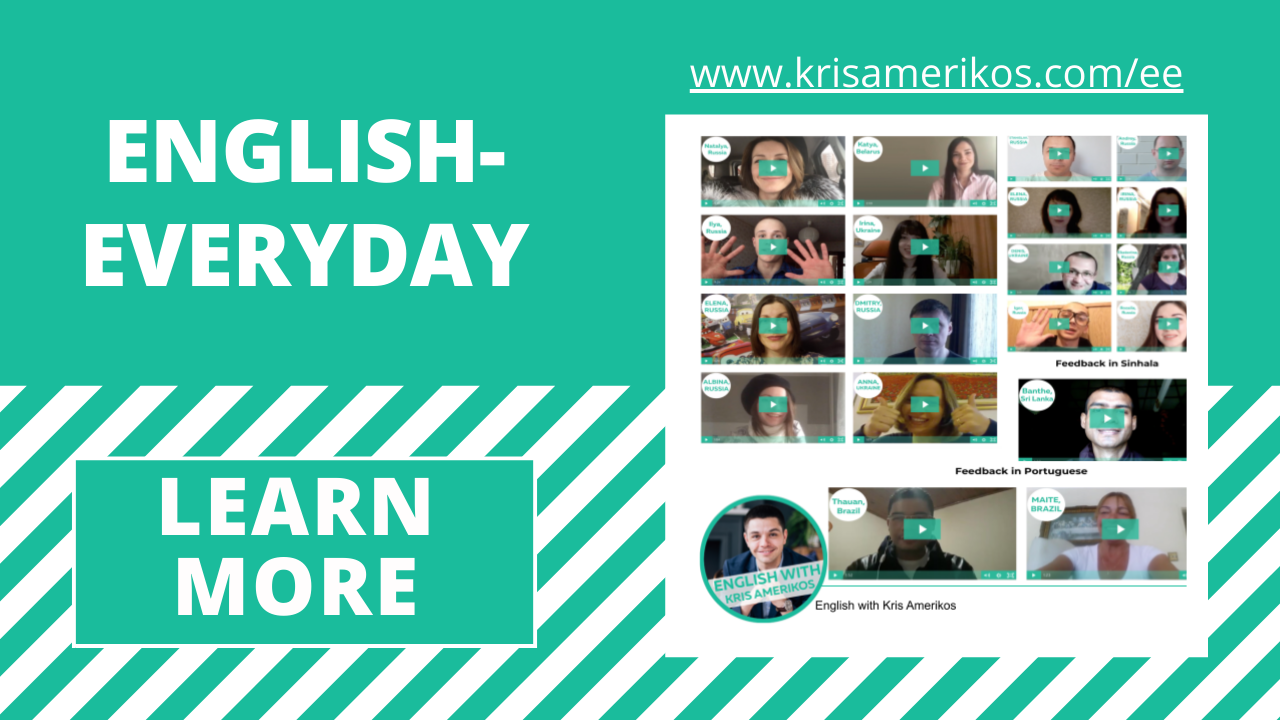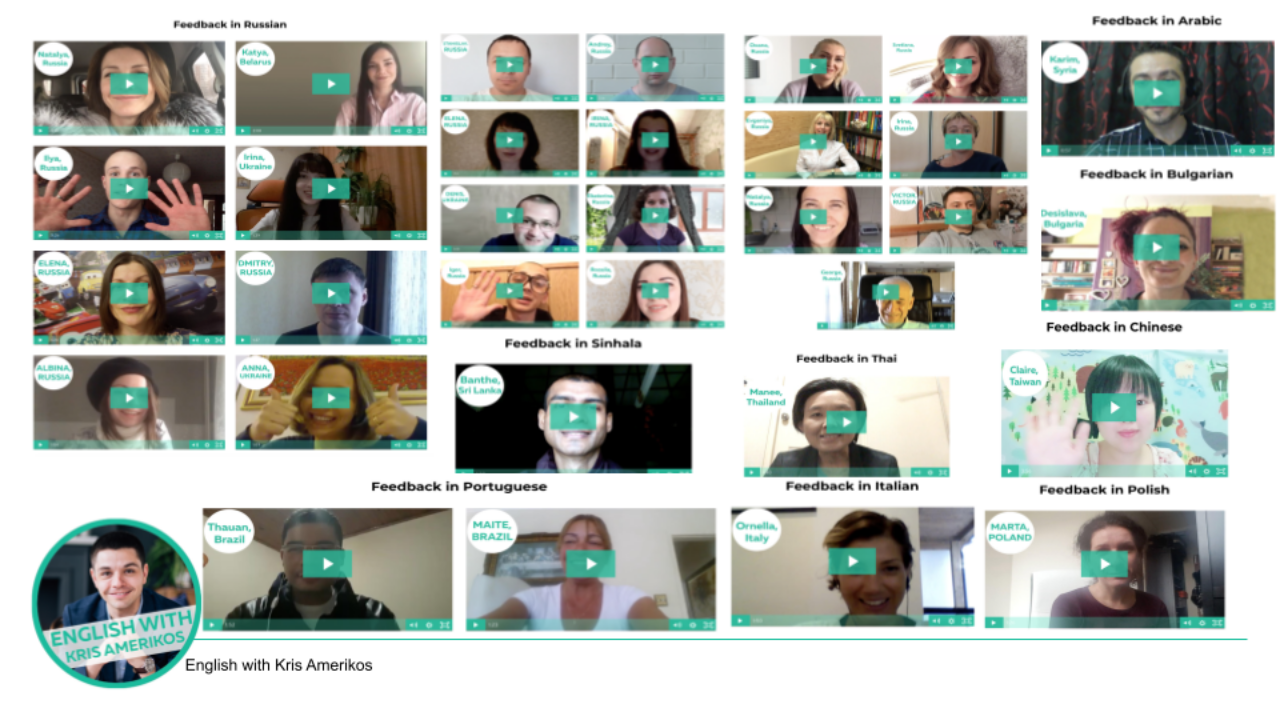How To Speak English Fluently - Detailed Explanation

Language learning is rarely a hobby. English language learners usually have an end goal in sight. Whether the goal is travel or work-related, learning English is usually a means to an end. This means that English language learners want to become fluent in English quickly.
 Learning to speak English fluently will take a lot of hard work, motivation and dedication. It will require countless hours of practice and time spent watching English movies and reading English books. You will get closer to speaking English fluently each and every day if you’re willing to put in the work.
Learning to speak English fluently will take a lot of hard work, motivation and dedication. It will require countless hours of practice and time spent watching English movies and reading English books. You will get closer to speaking English fluently each and every day if you’re willing to put in the work.
Why Is Important to Speak English Fluently
You may not need to have very good speaking skills to communicate in English. However, it’s important to speak English fluently because it’ll be easier for other English speakers to understand you.
Communication is a two-way street and the listener needs to interpret what you say. If the listener does not want to actively decipher broken English then a language barrier will be created and it will become difficult to communicate. It is important to speak English fluently because fluency will help you tear down language barriers.
English fluency will also help you communicate your thoughts and opinions precisely and clearly. Every English language learner can express themselves better in their mother-tongue language. Speaking English fluently simply means that you will be able to express yourself in the same way in English.
Where People Make Mistakes When They Want To Become Fluent
The biggest mistake you can make when you want to become fluent in English is not making mistakes. It’s OK if your communication is not perfect. There is no way that it can be perfect without making mistakes at first. Mistakes mean that you’re using the language.
The second mistake people make when they want to become fluent is only speaking to themselves. English language learners may end up spending too much time learning English on their own. The problem that arises is that they know all of the rules and grammar points, but they cannot use them in spoken English.
Another issue that comes up from only learning a language alone is that pronunciation errors and grammar errors become habits. Habits are challenging to break and can get in the way of communication.
How to Speak English Fluently in Easy Way
The easiest way to speak English fluently is to practice speaking every day. The key is to find an environment where you can express yourself while talking about topics that interest you.
You don’t need to spend hours and hours and hours studying English. Simply find a native English-speaking partner and speak with them. Your English-speaking partner should know English grammar rules and they will be able to explain them to you while correcting you.
Speaking with an English speaking partner will also help build your confidence. You can master the English language, build your confidence and learn English grammar all at the same time.
You need to push yourself to succeed - but this doesn’t mean you need to set the bar too high. Every English activity you do, every movie you watch, and every book you read must be suitable for your level. If you’re starting to feel discouraged because of constant failure, lower your level and try again. Learning to speak English fluently should feel difficult but not impossible.
What is English Everyday
English-Everyday is an English course with live lessons for English learners who want to improve their English with native speakers, professional teachers, and students from around the world.
You have live lessons where you can join every day. You can review all record lessons. There is a calendar of scheduled lessons so you can see when lessons are and at what time you can join.
In English Everyday program, you have support and also you have student chat where you can speak with other students from all around the world. You can look at our feedback page so that you can know from which countries our students are. Before you join our program, we strongly recommend you sign up for our free seminar with Kris Amerikos, where you can learn:
- What goals you need to have to get better results
- How to become fluent in English very quickly
- What you need to do to have perfect pronunciation
- The 3 biggest mistakes you need to avoid
- Which free resources will help you learn English
- The best resource to use to improve your speaking
Best Tips to Speak English Fluently
There is no reward without effort - but there is a correct way to put in the effort. Every English language learner is different. What works for one won’t necessarily work for another. Below are some tips you can try out to see if they help you speak English fluently.
Learn how to learn a language smarter - not harder.
Speak, Speak, Speak
The first step is to speak English as often as possible. There is no substitute for improving your spoken English fluency. You need to speak English and speak it a lot.
You can speak English every day by:
- Finding an English-speaking partner:
An English-speaking partner can guide you to speak fluently and correct you when you make errors. The mistakes you make will help you learn and the constant practice will improve your English fluency.
- Finding another English learner to practice with:
Be careful with this one because you don’t want to teach each other your bad habits. Another English learner can often help you practice speaking English, but you should always also have an English-speaking partner or teacher.
- Talking to yourself:
Don’t be afraid to have conversations with yourself out loud. It’s important to construct your own sentences. You can start by thinking of a new piece of vocabulary or a phrasal verb you’ve learnt and form sentences. Talk to yourself as you move through your daily activities and see what you can explain in English.
Make Mistakes
If you’re not making mistakes, you’re not learning. It’s that simple. Fluency comes when you can speak a language without thinking about every word and sentence you create. The only way to improve speaking fluently in English is to practice forming sentences without thinking too much.

Of course, you’ll make mistakes. But your English-speaking partner can correct you and the corrections will stick in your head. The only way to get the theory out of your head and into practice is by doing it - so start making mistakes today.
Don’t Overdo Grammar
Yes, grammar is important. Yes, speaking English fluently does require you to know how to use grammar. However, you need to separate learning grammar from practicing speaking English.
There is a time and a place for learning English grammar. If you only spend time learning English grammar, you won’t know how to use it in real life.
Remember, native speakers of any language don’t need to learn grammar rules - and they definitely don’t learn them first. They just know them. A child first learns how to communicate before they produce grammatically correct sentences. You need to learn to trust your brain. It might take a little longer, but your brain will eventually put the pieces together. Once communication becomes easier, so will English grammar.
Expose Yourself To English
For our brains to learn a language, they need to be exposed to it as often as possible. This means immersing yourself in the world of spoken and written English.
You should watch English movies and listen to English podcasts to hear how English is used in the real world. You’ll quickly learn that grammar rules are made to be broken, words are linked together and usually sound like one long word and that English has a natural rhythm. Your brain will also be working hard to understand everything. Don’t put too much pressure on yourself at first. Just listen.

Reading English books will also give you a visual representation of English and help you learn new words. It’s a lot easier to learn new words in written form. It’s also important to remember that English is not a phonetic language, so learning the written form will also help you when it comes time to write in English.
Improve Pronunciation
Take note of the way English speakers speak while watching English movies and listening to podcasts. Note when they make reductions and when they don’t. Listen for linking in English and try to repeat it. Pronunciation is a lot more than simply learning how to say each individual word.
You can improve your English speaking at home by listening, repeating and speaking in front of a mirror. You must focus on your mouth and tongue position when saying a word, phrase or sentence. This will help you produce the correct sound.
Learn The Rhythm of English
Learning how to link and reduce words in English enables you to speak English with its specific rhythm. It will make it easier for English speakers to understand you and for you to keep their attention. Unfortunately, English language learners can lose the interest of the listener if they over-emphasize every word or separate each word to pronounce it individually. This is not how English is spoken.
Understanding the rhythm of spoken English also guarantees that you’ll be able to understand other people a lot easier. You mustn’t try to understand every single word in a sentence. English reductions often make it difficult to hear what the word is in the first place. It’s a better idea to focus on the stressed words because they are the content words that hold all of the meaning.
Think In English
This is particularly difficult. You need to stop translating on paper and in your mind to speak English fluently. Try to think in English. You can start by constructing simple sentences by reflecting on a movie or practicing a new grammar point in your mind. Start small and build up from there. Your English fluency will improve greatly if you can think in English.
Learn How To Answer Questions
One thing that instantly makes someone sound like an English language learner is answering the question:
“Do you like pizza?”
With:
“Yes, I like.”
The auxiliary verb that is used to create the question must be used in the short answer.
In this question, ‘do’ is the auxiliary verb.
The correct short answers are:
“Yes, I do.”
“No, I don’t.”
The same rule applies with:
“Can you read in English?”
“Yes, I can.”
“No, I can’t.”
“Would you like to go to the beach today?”
“Yes, I would.”
“No, I wouldn’t.”
Look for the clues in the question when you answer them. Don’t try to use another auxiliary verb that wasn’t in the original question when the answer is already there.
Sing Karaoke
Karaoke is fun, entertaining and it can help you develop your pronunciation skills. Karaoke doesn’t help you to speak English fluently, but it can help you to practice pronunciation while having fun.

Singing karaoke also helps to get words and phrases stuck in your head. But remember Justin Biebers “my mamma don’t like you” and Bill Withers’ “ain’t no sunshine” are not reliable sources to learn English grammar. They will, however, teach you how native English speakers bend and break the grammar rules.
Learn Collocations, Phrasal Verbs, And Phrases
Some words just go together. Whether it’s an adjective and a preposition (addicted to/obsessed with), a verb and a preposition (listen to/play with) or words that go together (heavy traffic/strong wind), some words need each other.
Therefore, it’s best to learn words in phrases rather than individual words. Once you know the phrase, play around with it and figure out what you can change and what you can’t change in the phrase or sentence.
You’ll also need to put a lot of time into learning English phrasal verbs. English phrasal verbs like ‘up to’ and ‘eat out’ have idiomatic meanings. You need to learn the phrasal verb as one word. None of the words can be left out.
Example:
“I take care my father” is not correct.
“I take care of my father” is correct.
Pay close attention to completing phrasal verbs when speaking English.
Ask Yourself Why
While listening to English or reading English books, ask yourself why the speaker or author used the words, phrases, or grammar structure they chose. It’s important to study the English language. Don’t be afraid to pull it all apart and piece it back together.
Ask yourself if there is another way to say the sentence and how the meaning changes. If you get confused, then take that confusion to your next English lesson and let your teacher help you figure it out.
Write That Down
Take notes of the mistakes you make, the words you learn and the phrases you come across on your English learning journey. New vocabulary and corrections will not stick in your mind without a little bit of revision. Make sure you expose yourself to new words and phrases at least 17 times to be sure that you’ll learn them. You must also go back and reread the corrections to your mistakes to make sure you’re actively working to improve your English skills.
Use Technology
Zoom, WhatsApp, Facebook, and Google are all fantastic resources for learning English - so take advantage of them. Technology can also bring a native English speaking partner into your home to make learning English at home a breeze.
There are countless resources online for learning English and a lot of platforms where you can speak to other English learners and teachers. Take advantage of technology to take your English skills to the next level.
Get Uncomfortable
The ugly truth is that learning a language is awkward, uncomfortable and challenging. However, success is on the other side of your comfort zone. If you don’t feel uncomfortable, then you’re not pushing yourself.
You need to understand from the beginning that the process is going to be frustrating. No sooner will you have learnt a grammar rule than you’ll be required to break it. It’s the reality of learning a language. Try not to let it worry you too much. You’ll make mistakes and you’ll learn and, eventually, you’ll feel comfortable and confident.
Record Yourself
Speaking happens so quickly that you won’t remember exactly what you said after you’ve said it. This is why it’s best to record yourself, listen to it and correct yourself afterwards. Write these corrections down and make sure you refer to them again and again.
How to Speak English Fluently in Daily Life
It can be difficult to speak English fluently in daily life. Life happens and it can be difficult to schedule lessons at the same time every day or every week.
English course, English-Everyday has been designed with the everyday English learner in mind. You can join live lessons throughout the day. The classes run with or without you, so you can hop into a lesson when you have some free time and also get the chance to ask your pressing English questions. English-Everyday is a platform that will get you speaking English fluently every day.









































